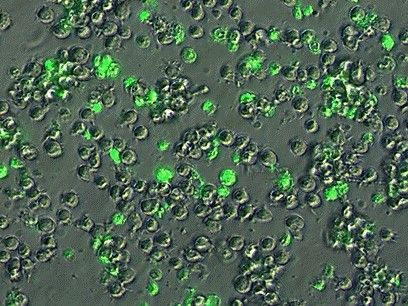Are polyphenols, natural compounds widely present in fruits and vegetables, really beneficial? A group of scientists at the Institute of Food Sciences (Isa) of the National Research Council (Cnr) in Avellino (Italy) tried to give an answer to this issue in two different studies. The authors conclude that the study of the healthy effects of polyphenols in cancer prevention and therapy must be investigated taking advantage of different experimental approaches, starting from adequate and specifically selected cellular models. Therefore, their efficacy must be carefully evaluated.
In the recent review article published in the journal Seminars in Cancer Biology, the team at Isa-Cnr analyzed the capacity of polyphenols to act as antioxidants, e.g., to scavenge and neutralize free radicals, responsible for ageing, pointing out the dichotomy between preclinical data on animal and cell lines, which generally support the anticancer activity of polyphenols, and the published or ongoing clinical trials, often unclear, inconclusive or even negative.
“We must clearly distinguish between prevention and therapy, when we consider the potential beneficial effects of polyphenols in cancer”, explains Gian Luigi Russo, head of the research team at Isa-Cnr. “It is not rationale to assume that the efficacy of the antioxidants can be the same when the subject is healthy and does not undergo a therapeutic regimen, compared to a supplementation at high doses, which usually occurs in cancer patients in combination with conventional radio/chemotherapy”.
The scientists at Isa-Cnr agree with the hypothesis also supported by other colleagues: “Polyphenols, at low doses, as those present in a diet rich in fruits and vegetables, may exert their antioxidant protective action by a mechanism which highlights their capacity to behave intracellularly as bland pro-oxidants and, in such a way, potentiate the enzymatic antioxidant defence. On the opposite, evidence are accumulating in the scientific literature indicating that in patients undergoing radio/chemotherapy, high doses of antioxidants may lower the efficacy of the anticancer therapeutic treatment”, concludes Russo.
In the study published on Oncotarget journal, it has been explored the possibility that single polyphenols may exert an anticancer activity independently from their antioxidant capacity. This is the case of quercetin, a flavonoid abundantly present in onions, apples, grape skin and, and red wine. “The results obtained indicate that quercetin contributes to kill cancer cells in chronic lymphocytic leukemia (CLL), the most common type leukemia in adults, resistant to chemotherapy”, says Maria Russo, the first author of the article. “In cells derived from a patient affected by an aggressive form of CLL, pharmacological doses of quercetin inhibited the activity of two key enzymes, PI3K and CK2, leading to CLL resistance to drugs inducing a genetically programmed type of cell death (apoptosis). Switching off this pathway, quercetin synergistically potentiates the efficacy of a pro-apoptotic drug, called ABT-737. What is amazing is the capacity of quercetin to enter into the cells and inhibit the pro-survival, cancer pathway within few minutes from treatment, suggesting a very specific effect”.
Profile
Who: Institute of Food Sciences (Cnr, Italy)
What: Antioxidant polyphenols in cancer treatment DOI: 10.1016/j.semcancer.2017.05.005; Quercetin in chronic lymphocytic leukaemia DOI: 10.18632/oncotarget.17246
Contacts: Gian Luigi Russo, e-mail: glrusso@isa.cnr.it; Maria Russo, e-mail: mrusso@isa.cnr.it, tel. 0825/299331
Ufficio stampa:
Rita Bugliosi
Cnr – Ufficio stampa
rita.bugliosi@cnr.it
Vedi anche:

